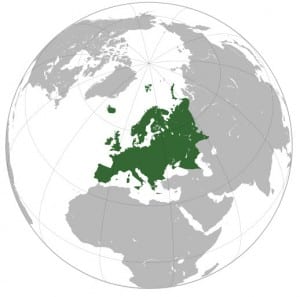Renewable energy grid parity may be coming to Europe
October 21, 2014Report suggests that grid parity is not an impossible dream in Europe
Unsubsidized renewable energy may become a reality in Europe within the coming years. A new report from POYRY, an energy consultancy firm, suggests that wholesale grid parity is on the horizon. The report highlights the growing trend of retail grid parity in many European countries. As renewable energy continues to grow and receive more support, it is beginning to compete with more traditional forms of energy in terms of cost and supply.
Grid parity could be possible as clean energy continues to gain momentum in several European countries
Grid parity, also referred to as socket parity, refers to a renewable energy source being able to generate electrical power at a levelized cost, which is less than or equal to the cost of electricity purchased through and existing energy grid. The term is most often used to denote the financial environment of the clean energy space. For several years, clean energy has been more expensive than fossil-fuels, largely due to the subsidies being provided to the latter, but that is beginning to change.
Several countries could achieve grid parity within the next few years
 The report from POYRY predicts that Turkey could experience grid parity in its solar and wind energy sectors by 2018. Spain is also expected to achieve grid parity with its solar energy sector by 2021, with Portugal following closely behind. Several smaller European countries are likely to achieve grid parity with their renewable energy sectors by 2025, but it may take longer for large countries, like Germany, to accomplish this goal.
The report from POYRY predicts that Turkey could experience grid parity in its solar and wind energy sectors by 2018. Spain is also expected to achieve grid parity with its solar energy sector by 2021, with Portugal following closely behind. Several smaller European countries are likely to achieve grid parity with their renewable energy sectors by 2025, but it may take longer for large countries, like Germany, to accomplish this goal.
Unsubsidized clean energy may soon become a reality in Europe
As clean energy continues to gain momentum, governments are beginning to reduce the subsidies that they have been providing to the clean power space. This is not necessarily bad news, as governments are beginning to see that clean energy sectors can support themselves financially rather than rely heavily on financial support. As governments begin pulling back their financial support, they may begin seeing the economic benefits of clean energy more clearly.

 With over 15 years of reporting hydrogen news, we are your premier source for the latest updates and insights in hydrogen and renewable energy.
With over 15 years of reporting hydrogen news, we are your premier source for the latest updates and insights in hydrogen and renewable energy.